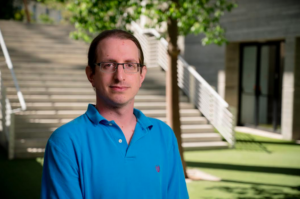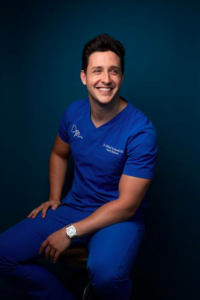NEW YORK (Press Release) — Scientific research has to meet clear ethical guidelines to prevent harm to participants. However, research can also indirectly harm individuals and social groups, for example by shaping social perceptions and inspiring policy. Researchers receive little to no training on how to consider and minimize such harm.

To that end, Ben-Gurion University of the Negev’s (BGU) Dr. Niv Reggev and his international colleagues have published 10 simple rules for socially responsible science. The article was published late last month in PLOS Computational Biology.
Recently, there have been more and more calls for scientists to be held accountable for the social impact of their studies in addition to their findings. Therefore, Dr. Reggev of the Department of Psychology and School of Brain Sciences and Cognition at BGU, along with Dr. Alon Zivony of Birkbeck College at the University of London and the University of Sheffield, Dr. Rasha Kardosh of New York University, and Dr. Liadh Timmins of Swansea University decided it was time to brainstorm some actionable rules. Their 10 rules govern the entire lifecycle of a study, from planning to publication. They are:
- Get diverse perspectives early on
- Understand the limits of your design with regard to your claims
- Incorporate underlying social theory and historical events
- Be transparent about your hypothesis and analyses
- Report your results and limitations accurately and transparently
- Choose your terminology carefully
- Seek a rigorous review and editorial process
- Play an active role in ensuring correct interpretations of your results
- Address criticism from peers and the general public with respect
- When all else fails, consider submitting a correction or a self-retraction
“When no training exists, scientific outputs can often (unknowingly) harm society. From reinforcing social stereotypes to creating a biased AI-based tool, well-meaning scientists often generate scientific studies that unwittingly lead to detrimental societal impacts. Here we proposed a theoretical framework and a set of 10 actionable rules to help scientists prevent such negative societal consequences,” Dr. Reggev says.

Dr. Reggev’s guidelines for socially responsible science have been published in advance of Dr. Mike Varshavski (known as “Dr. Mike”), a social media influencer known for identifying and debunking medical misinformation in all its forms, hosting Americans for Ben-Gurion University’s (A4BGU) “Celebrating the Remarkable 3: Pioneering Medical Science” virtual event on April 23.
Now in its third year, A4BGU’s annual virtual event will showcase BGU’s latest innovative breakthroughs in the fields of 3D printed science, cancer research, biomedical engineering, and more. Participants will discover how the pioneering spirit of Israel’s first Prime Minister David Ben-Gurion lives on through the institution bearing his name. Attendees will also get acquainted with how BGU uses 21st century medical techniques to train the Negev desert region’s science leaders of tomorrow.
A board-certified family medical physician and social media influencer, Varshavski has amassed more than 20 million followers across digital platforms. On his YouTube channel, Dr. Mike educates an audience of over 10 million subscribers about their health and how to spot medical misinformation in all its nefarious forms.
“We are delighted to be spotlighting Ben-Gurion University’s breakthrough research, while providing a platform to its outstanding students and highlighting the myriad ways the institution is bringing innovative solutions to the Negev and beyond,” said Doug Seserman, chief executive officer of A4BGU. “Dr. Mike is a natural choice for hosting this event, given his passion for broadly disseminating medical education on social media and his gift for making the most complex subjects more understandable to all.”